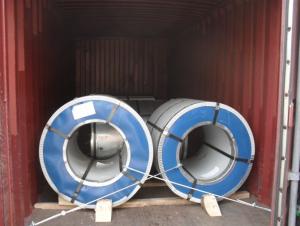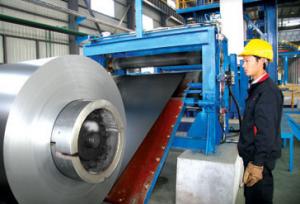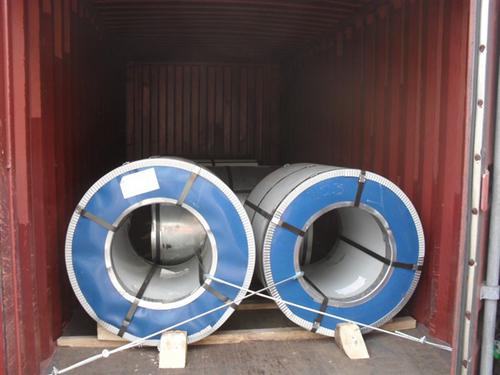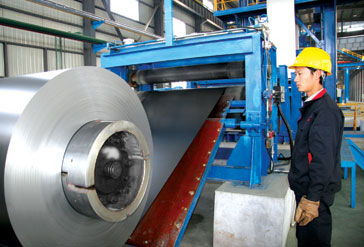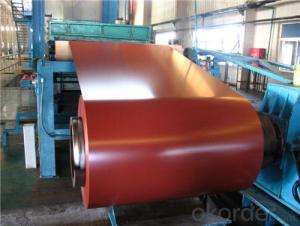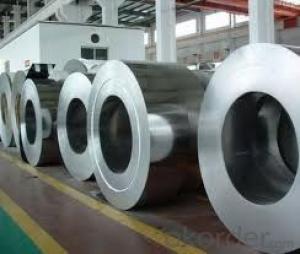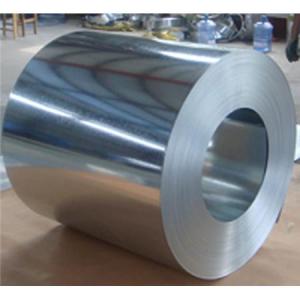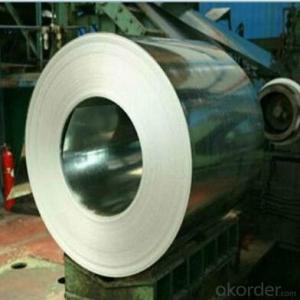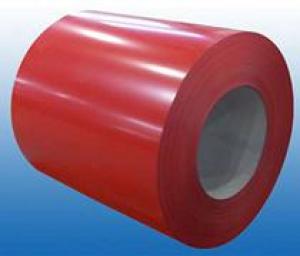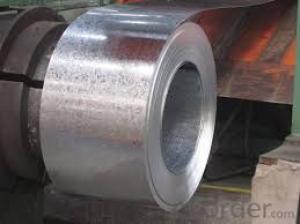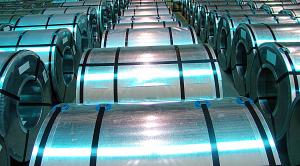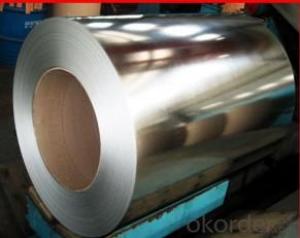Prime HUIFU Hot dip galvanized steel coil DX51D
- Loading Port:
- Qingdao
- Payment Terms:
- TT OR LC
- Min Order Qty:
- -
- Supply Capability:
- 20000吨 m.t./month
OKorder Service Pledge
OKorder Financial Service
You Might Also Like
PRODUCT DESCRIPTION:
Standard | JIS G 3302, ASTM A653, EN10327,10143,GB/T 2518 |
Grade | SPCC, DX51D+Z,CS Type A.B.C |
Zinc Coating | galvanized(GI) |
Zinc Weight | 40~140/m2 |
Thickness | 0.18mm~1.2mm |
Width | 762mm-1,250mm |
Coil weight | 3-20 tons |
Surface processing | Zero Spangle |
Coil Chemical Processing | Skin Pass,chromate,dry,oiled |
packing | waterproof paper and galvanized steel protection cover and steel strip packed Or as you request. |
Application | Construction, hardware, home appliances, interior decoration... |
Advantages | 1. Good experience producing and trading on PPGI/galvanized steel coil /steel sheet. With quality assurance and certification . 2.With technology strength and powerful. 3. Shortest delivery time . 4. authentication service and Sincere Caring Services. 5. We strive to be NO.1 of the same trade |
If you have any need of GI or PPGI Coil,please feel free to contact me.
Alena
- Q: How are steel coils coated or painted?
- Steel coils are typically coated or painted using a process called coil coating. In this process, the steel coil is cleaned, treated, and primed before being coated with a layer of paint or a protective coating. This is usually achieved through a continuous automated line, where the coil is unwound, cleaned, coated using various methods such as roller coating or spraying, and then cured to ensure adhesion and durability of the coating. This process allows for efficient and uniform coating application, providing the steel coils with enhanced corrosion resistance and aesthetic appeal.
- Q: What are the major global steel coil markets?
- The primary concentration of major global steel coil markets lies in regions that possess significant industrial and manufacturing sectors. Key markets encompass North America, Europe, and Asia-Pacific. In North America, particularly the United States, the steel coil market holds substantial importance due to its large automotive industry and construction sector. The demand for steel coil in this region is propelled by the production of automobiles, infrastructure development, and residential construction. Europe stands as another crucial market for steel coil, with countries like Germany, Italy, and France acting as major consumers. The demand for steel coil in this region is driven by the automotive industry, construction sector, and machinery manufacturing. Asia-Pacific, specifically China, holds the position of the largest global market for steel coil. China's flourishing economy, rapid urbanization, and infrastructure development have resulted in a massive demand for steel coil. Alongside this, other countries in the region such as Japan, South Korea, and India also possess substantial steel coil markets due to their industrial and construction activities. Furthermore, emerging markets in Latin America, the Middle East, and Africa are witnessing a surge in demand for steel coil. These regions are experiencing economic growth and urbanization, leading to an increase in construction and infrastructure projects. In conclusion, the major global steel coil markets are propelled by industrial and manufacturing activities, infrastructure development, and construction projects in various regions across the globe.
- Q: How are steel coils used in the manufacturing of steering systems?
- Steel coils are used in the manufacturing of steering systems as they provide the necessary strength and durability required for the components of the system, such as steering columns, gears, and shafts. These coils are shaped and formed into various parts through processes like cutting, bending, and welding, ultimately contributing to the overall stability and functionality of the steering system in vehicles.
- Q: how is stainless steel made? what are the things used in making it?
- There are different recipes, and different types of steel are made for different purposes. They all share high temperatures, which allows extra carbon to bind with the iron. This is the main thing that makes steel stainless, or rustproof. Other metals such as chromium, molybdenum, magnesium etc. are often added to increase tensile (twisting) strength, flexibility, etc.
- Q: How are steel coils processed for cutting to length or blanking?
- Steel coils are processed for cutting to length or blanking through a series of steps. First, the coils are uncoiled and straightened to remove any bends or twists. Then, they are fed through a machine that measures and marks the desired length or shape. Next, a cutting tool or die is used to precisely cut the steel into the required dimensions. Finally, the cut pieces are inspected for quality and packaged for shipment.
- Q: How do steel coils resist corrosion?
- Steel coils resist corrosion through a combination of factors including the presence of protective coatings, the use of corrosion-resistant alloys, and proper handling and storage practices. The most common method to prevent corrosion in steel coils is the application of protective coatings such as zinc, known as galvanization. This process forms a barrier between the steel and its environment, preventing exposure to moisture and corrosive elements. The zinc coating acts as a sacrificial layer, corroding in place of the steel. Another method to enhance corrosion resistance is the use of corrosion-resistant alloys, which are specifically designed to withstand harsh environments. These alloys contain elements such as chromium, nickel, or molybdenum, which form a passive oxide layer on the surface of the steel, protecting it from corrosion. Proper handling and storage practices also play a crucial role in preventing corrosion. Steel coils should be stored in a dry and well-ventilated area to minimize exposure to moisture. They should be protected from contact with other metals and materials that may cause galvanic corrosion. Regular inspection and maintenance are also important to identify and address any signs of corrosion early on. In summary, steel coils resist corrosion by utilizing protective coatings, corrosion-resistant alloys, and proper handling and storage practices. These measures work together to prolong the lifespan of steel coils and ensure their durability in various environments.
- Q: How are steel coils used in the production of aerospace structures?
- Steel coils are used in the production of aerospace structures in various ways. One of the main applications is in the manufacturing of aircraft frames and components. Steel coils are often used as the raw material to fabricate the structural members of an aircraft, such as fuselage sections, wing spars, and landing gear. The coils are typically processed through a series of operations, including cutting, bending, and welding, to shape them into the required structural components. Steel coils are preferred in aerospace applications due to their high strength and durability. They can withstand the extreme forces and stresses experienced during flight and landing. The use of steel coils ensures that the aerospace structures have the necessary structural integrity to endure the harsh operating conditions. Additionally, steel coils are also used in the production of aerospace fasteners and connectors. These fasteners play a crucial role in holding various components and structures together. Steel coil materials are often used to manufacture bolts, screws, and rivets, which are essential for assembling different parts of an aircraft. The strength and reliability of steel coils make them suitable for fastening applications, ensuring that the aerospace structures remain securely connected. Furthermore, steel coils are utilized in the production of aerospace equipment and machinery. Many aerospace manufacturing processes rely on heavy machinery and specialized equipment. Steel coils are commonly used in the construction of these machines due to their ability to provide robust and sturdy frameworks. They are often employed in the fabrication of tooling, jigs, fixtures, and molds, which are essential for producing aerospace structures with precision and accuracy. In summary, steel coils play a vital role in the production of aerospace structures. They are used as raw materials for manufacturing aircraft frames and components, fasteners and connectors, as well as aerospace equipment and machinery. The strength, durability, and reliability of steel coils make them indispensable in the aerospace industry, ensuring the safety and integrity of aerospace structures.
- Q: What are the advantages of using steel coils in the manufacturing industry?
- There are several advantages of using steel coils in the manufacturing industry. Firstly, steel coils provide excellent strength and durability, making them ideal for applications that require high load-bearing capacity. Secondly, steel coils are highly resistant to corrosion, making them suitable for outdoor or harsh environments. Additionally, steel coils offer consistent and uniform properties, ensuring reliable and precise manufacturing processes. Moreover, steel coils can be easily formed and shaped, allowing for versatile use in various industries. Lastly, steel coils are recyclable, making them an environmentally friendly choice.
- Q: Have spent two days making a specialized knife out of 304 stainless steel, after throwing into a log it bent slightly arghhhh. Is it worth continuing to finish it off or start all over again with different kind of steel if so which kind should i use.
- just because something is made out of 304 stainless steel does not make it tougher than carbon steel. Stainless steel includes other elements such as chromium. 304 stainless cannot be hardened by heat treatment.
- Q: I just want regular steel, not stainless steel.
- If it rusts, magnetic, hard, heavy with high melting point I reckon yourve found mild steel.
Send your message to us
Prime HUIFU Hot dip galvanized steel coil DX51D
- Loading Port:
- Qingdao
- Payment Terms:
- TT OR LC
- Min Order Qty:
- -
- Supply Capability:
- 20000吨 m.t./month
OKorder Service Pledge
OKorder Financial Service
Similar products
Hot products
Hot Searches
Related keywords
